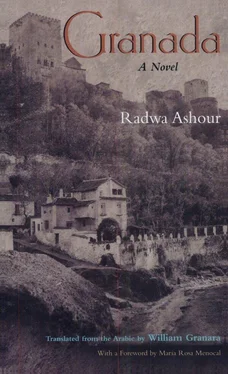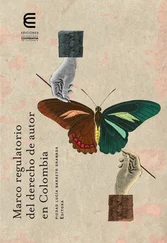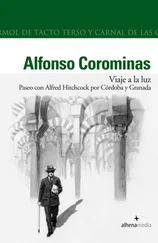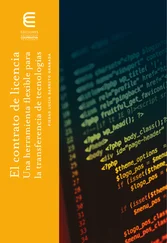Radwa Ashour - Granada
Здесь есть возможность читать онлайн «Radwa Ashour - Granada» весь текст электронной книги совершенно бесплатно (целиком полную версию без сокращений). В некоторых случаях можно слушать аудио, скачать через торрент в формате fb2 и присутствует краткое содержание. Год выпуска: 2003, ISBN: 2003, Издательство: Syracuse University Press, Жанр: Современная проза, Историческая проза, на английском языке. Описание произведения, (предисловие) а так же отзывы посетителей доступны на портале библиотеки ЛибКат.
- Название:Granada
- Автор:
- Издательство:Syracuse University Press
- Жанр:
- Год:2003
- ISBN:9780815607656
- Рейтинг книги:5 / 5. Голосов: 1
-
Избранное:Добавить в избранное
- Отзывы:
-
Ваша оценка:
- 100
- 1
- 2
- 3
- 4
- 5
Granada: краткое содержание, описание и аннотация
Предлагаем к чтению аннотацию, описание, краткое содержание или предисловие (зависит от того, что написал сам автор книги «Granada»). Если вы не нашли необходимую информацию о книге — напишите в комментариях, мы постараемся отыскать её.
Granada — читать онлайн бесплатно полную книгу (весь текст) целиком
Ниже представлен текст книги, разбитый по страницам. Система сохранения места последней прочитанной страницы, позволяет с удобством читать онлайн бесплатно книгу «Granada», без необходимости каждый раз заново искать на чём Вы остановились. Поставьте закладку, и сможете в любой момент перейти на страницу, на которой закончили чтение.
Интервал:
Закладка:
Saleema participated neither in preparing the meal nor in the women’s mourning rituals, but withdrew to her room. She was thinking about death and how it oppresses and humiliates, and that before it human beings stand powerless, and she thought about God in the highest heavens. Is He watching all of this in silence and indifference? Isn’t it He who takes life away? Why does He take it away and why does He place it in the heart only to recall it after a while, leaving its warm nest a wasteland? God seemed so obscure to her, incomprehensible, a tyrant who burdened His servants with unbearable things. She contemplated the image of her dead grandmother, and a shiver ran through her body. A lump swelled in her throat, and she held back the tears from her eyes. Her grandmother was dead like her infant son and the gazelle. How could all this be? She couldn’t do to the grandmother’s corpse what “Hayy” in the story had done to the gazelle, the mother who nursed him, when he ripped open her chest to look for the thing that animates the body, after he had called out to her and she did not respond. He looked at her eyes, her ears, and all her limbs, and he didn’t see any defect or disease, but he found her nonetheless incapable of moving.
Saleema brought out the book and opened it exactly to a page practically worn from constant use. She read:
He examined the heart and saw that it was totally still. He wondered if there were some discernible defect, but he didn’t see anything. He pressed it with his hand, and he felt a cavity. He said, “Perhaps what I’ve been looking for has always been inside this organ, and I’ve never been able to reach it.”
He split it open. He noticed that there were two cavities, one on the right side and one on the left.The one on the right was filled with coagulated blood and the one on the left was completely empty. He said, “I only see coagulated blood in this chamber on the right. It must have clotted when the rest of the body became in this condition.” For he had witnessed that whenever blood leaves the body and flows out, it clots and congeals. “And this is blood like any other blood, and that this blood is found in all the other organs, and that no organ has the sole possession of the blood over the other organs. But what I’ve been seeking, my ultimate goal, does not have this quality, but rather something that uniquely distinguishes this state in which I find myself. It is that without which I cannot do, not for a single moment, and to which I attribute my first emanation.
“How many times have I been wounded by wild animals and rocks and much blood flowed from me, but that hasn’t caused me any serious danger, nor has it affected my actions? This chamber does not contain what I seek, I see that the chamber on the left is empty, but that must not be without reason. I’ve seen that every organ has a function that is uniquely its own. How can this chamber be worthless from what I’ve seen of its prominence? And what I’ve been seeking can only have been inside of it, but now it has departed and left it empty. And that’s when what happened to this body happened. It lost consciousness and the ability to move.”
When he saw that what was residing in that chamber had gone away before its demise and left it as it is, he became almost certain that it could not return to it after the breakage and destruction that had happened inside, And now Hayy considered the body as base, and having no significance in relation to what he now believed inhabits the body for a period of time and then departs. And so he focused his thinking on that one thing, but what is it? And how so? And what connected it to the body? What’s become of it? From which portals did it depart the body? And what was the reason that so disturbed it and forced it to leave? And why did the body arouse such aversion in it that it separated from it, even if willingly?
His mind was befuddled by all of this, and he thought no more about that body and cast it aside. And he realized that his mother, the one who showed him affection and nursed him, was that thing that went away, and that all her actions issued from it, and not from this useless body. He also realized that this body in all its parts is like an instrument for that thing, like the stick that he took in hand to fight off the wild beasts, and his attachment to the body was transferred to the owner of the body, its animator; and the only longing he had left was for that thing.
The Epistle of Hayy Ibn Yaqzhan [23] Risalat Hayy Ibn Yaqzhan is a philosophical romance about a foundling who grows up alone on a deserted island, and, through the powers of an uncorrupted mind, attains the highest intellectual and spiritual levels. It was written by the Andalusian Muslim philosopher Muhammad Ibn ’Abd al-Malik Ibn Tufayl (d. 1185).
was one of only five books that Saleema had taken from Ainadaniar when her grandfather died. A few years later, Naeem started to bring her one book at a time, always on the sly, and each time he would emphasize that she read it quickly, during those few days Father Miguel was away on one of his brief trips. He would give her the book, and she would stay up at night reading, exerting her mind to understand everything in it, and writing down notations until it exhausted her and she dozed off. Even in her sleep the ideas would pile up in her head, and the fear of having the book taken away from her would wake her up in the wee hours of the morning and coax her to resume her reading. Then Naeem would come by to retrieve the book and return it to its exact place in the library.
What kind of student is this whose reading list includes only a handful of books? she thought over and over again with bitterness and annoyance. She resorted to consoling herself with the thought that among her books was a book worth a hundred volumes, penned by the most eminent of scholars and philosophers, Avicenna, and that she studied his great medical treatise, the Qanun, as though under his direct tutelage. [24] Abu ’Ali al-Husayn, b. ’Abdallah Ibn Sina (d. 1037), a philosopher of Persian origin who combined Aristotelian and neo-Platonic theories with Islamic mysticism. His Qanun is a voluminous medical encyclopedia.
But however fanciful the thought, she was depressed just to think about the miserable times in which she lived, when buying books is a punishable crime, where studying demanded caution and secrecy, not only from the prying eyes of the stranger lurking about, but from acquaintances as well. She couldn’t read in the daytime and have Hasan, her mother, and the children all watching her as she put on the glasses she had taken from Naeem. She waited until the dark of night when everyone went to bed to light the lantern and read. And the narrow confines of her prison would gradually expand, and the iron bars of her cell would be pried open to the sunlight that shone from the book and from her mind. What kind of student is this whose reading list includes a handful of books? Saleema repeated the question in her mind resentfully as she recollected the good old days when people could pick up any book from any shelf in one of the great libraries, when a wise mentor gave guidance, and when travel to study at the feet of an illustrious scholar in Egypt or Syria satisfied the heart’s desire. Whether you stay or travel, in both cases the points of light from a thousand books are your lessons and your teachers. How is it possible from the confines of her Castilian prison to discover the secret of that bird that departs on the order of an inscrutable God? She wavered between hope and despair, as she contented herself with Avicenna’s Qanun, but then she was not satisfied, and so she added to the margins her questions and observations, as well as a summary of the findings her experiments led her to. She complied with these miserable times and Hasan’s adamant decisions to protect the family, and then she didn’t comply, whispering to Naeem the titles of books she wanted, or discreetly asking a woman who knows someone who knows a third person who can bring her a certain book for which she will pay a year’s worth of earnings.
Интервал:
Закладка:
Похожие книги на «Granada»
Представляем Вашему вниманию похожие книги на «Granada» списком для выбора. Мы отобрали схожую по названию и смыслу литературу в надежде предоставить читателям больше вариантов отыскать новые, интересные, ещё непрочитанные произведения.
Обсуждение, отзывы о книге «Granada» и просто собственные мнения читателей. Оставьте ваши комментарии, напишите, что Вы думаете о произведении, его смысле или главных героях. Укажите что конкретно понравилось, а что нет, и почему Вы так считаете.












